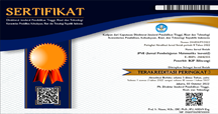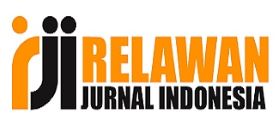ETHNOMATHEMATICS DAN PERMAINAN TRADISIONAL DALAM PENDIDIKAN MATEMATIKA
DOI:
https://doi.org/10.22460/jpmi.v5i1.p%25pKeywords:
Ethnomathematics, Traditional games, Math skills, Meta analysisAbstract
Ethnomathematics is a field that discusses mathematics which is associated with culture. Among them are traditional games, traditional ceremonial equipment, numbers, and other cultures. This research is qualitative research with a meta-analysis method that uses the results of both international and national previous studies that discuss the use of ethnomathematics in mathematics learning in the 2000-2020 period. The purpose of this study is to analyze each article obtained about the use and influence of ethnomathematics and traditional games in mathematics education. The research results used in this study consisted of 161 articles from 250 articles obtained. The results of the analysis show that ethnomathematics and traditional games have a significant influence on students' mathematical abilities. In general, mathematical material that can be found based on the results of the analysis is geometry, numbers, and algebra. The use of traditional games to instill concepts in students has an impact on students' mathematical understanding. Besides being able to help understand mathematical concepts, character values are also found in traditional games and cultures from certain areas, such as the values of honesty, cooperation, self-confidence, empathy, and others.
References
Abdullah, A. S. (2017). Ethnomathematics in Perspective of Sundanese Culture. Journal on Mathematics Education, 8(1), 1–16. https://doi.org/10.22342/jme.8.1.3877.1-15
Abi, A. M. (2016). Integrasi Etnomatematika Dalam Kurikulum Matematika Sekolah. JPMI (Jurnal Pendidikan Matematika Indonesia), 1(1), 1–6. https://doi.org/10.26737/jpmi.v1i1.75
Agusti, F. A., Zafirah, A., Anwar, F., Arifin, Z., & Syafril, S. (2018). The Implantation of Character Values toward Students through Congklak Game for Mathematics Instructional Media. Jurnal Penelitian Pendidikan, 35(2), 133–141. Retrieved from https://journal.unnes.ac.id/nju/index.php/JPP/article/view/13947
Aikpitanyi, L. A., & Eraikhuemen, L. (2017). Mathematics Teachers’ Use of Ethnomathematics Approach in Mathematics Teaching in Edo State. Journal of Education and Practice, 8(4), 34–38.
Aini, I. N. (2018). ETNOMATEMATIKA : Matematika dalam Kehidupan Petani di Kabupaten Karawang. Teorema, 2(2), 101–106. https://doi.org/10.25157/.v2i2.1072
Aisyah, S. (2018). Pola Dasar Dan Makna Ukiran Motif Rumah Gadang Koto Sani Kecamatan X Koto Singkarak Sumatera Barat. NARADA, Jurnal Desain & Seni, 5(3), 401–416.
Albanese, V., & Perales, F. J. (2015). Enculturation with Ethnomathematical Microprojects: From Culture to Mathematics. Journal of Mathematics & Culture, 9(1), 1–11. Retrieved from https://www.researchgate.net/publication/333480358_Enculturation_with_Ethnomathematical_Microprojects_From_Culture_to_Mathematics
Aprinastuti, C. (2020). Developing 21st Century Skills for Elementary School Students Grade 1 by Implementing Indonesian Traditional Games in Mathematic Learning. International Conference on Progressive Education (ICOPE 2019), 422, 80–82. https://doi.org/10.2991/assehr.k.200323.094
Blanco-Ãlvarez, H., & Oliveras, M.-L. (2016). Ethnomathematics: A Political Tool for Latin America. RIPEM, 6(1), 112–126. Retrieved from https://www.semanticscholar.org/paper/ETHNOMATHEMATICS%3A-A-POLITICAL-TOOL-FOR-LATIN-Blanco-Ãlvarez-Oliveras/97987b95b71a49e41919b24234adb8a5c641c955
Brandt, A., & Chernoff, E. (2014). The Importance of Ethnomathematics in the Math Class. Ohio Journal of School Mathematics, (71), 31–36. Retrieved from https://kb.osu.edu/handle/1811/78917
Chahine, I., & Kinuthia, W. (2013). Juxtaposing Form, Function, and Social Symbolism: An Ethnomathematical Analysis of Indigenous Technologies in the Zulu Culture. Journal of Mathematics & Culture, 7(1), 1–30. Retrieved from https://www.researchgate.net/publication/316089427_Juxtaposing_Form_Function_and_Social_Symbolism_An_Ethnomathematical_Analysis_of_Indigenous_Technologies_in_the_Zulu_Culture
Chizary, F., & Farhangi, A. (2017). Efficiency of Educational Games on Mathematics Learning of Students at Second Grade of Primary School. Journal of History Culture and Art Research, 6(1), 232–240. https://doi.org/10.7596/taksad.v6i1.738
Fauziah, & Niniwati. (2017). Ethno-Mathematics Exploration on the Carvings of Rumah Gadang in South Solok. IJRDO-Journal of Educational Research, 02(11), 134–148. Retrieved from https://www.ijrdo.org/index.php/er/article/view/1738
Fendrik, M., Marsigit, & Wangid, M. N. (2020). Analysis of Riau Traditional Game-Based Ethnomathematics in Developing Mathematical Connection Skills of Elementary School Students. Ilkogretim Online-Elementary Education Online, 19(3), 1605–1618. https://doi.org/10.17051/ilkonline.2020.734497
Fitriani, T., Rusdi, & Agustinsa, R. (2019). Validitas LKPD Berbasis Permainan Tradisional Congklak Materi KPK dan FPB Pada Siswa Kelas IV SD Negeri 99 Kota Bengkulu. Jurnal Penelitian Pembelajaran Matematika Sekolah (JP2MS), 3(2), 258–268.
Fitriza, R., Afriyani, D., Turmudi, & Juandi, D. (2018). The Exploration of Ethno-Mathematics Embedded on Traditional Architecture of Rumah Gadang Minangkabau. Atlantis Press, 160(Incomed 2017), 270–276. https://doi.org/10.2991/incomed-17.2018.57
Fouze, A. Q., & Amit, M. (2018). Development of Mathematical Thinking through Integration of Ethnomathematic Folklore Game in Math Instruction. EURASIA Journal of Mathematics, Science and Technology Education, 14(2), 617–630. https://doi.org/10.12973/ejmste/80626
Furinghetti, F. (2000). The History of Mathematics as a Coupling Link Between Secondary and University Teaching. International Journal of Mathematical Education in Science and Technology, 31(January), 43–51. https://doi.org/10.1080/002073900287372
Hafsi, A. R., & Hasanah, S. I. (2018). Kajian Etnomatematika Pada Rumat Adat Taneyan Lanjeng. Prosiding Silogisme Seminar Nasional Pendidikan Matematika Universitas PGRI Madiun, (July 2018), 191–197. Retrieved from http://prosiding.unipma.ac.id/index.php/PSNPM/article/viewFile/602/601
Hardiarti, S. (2017). Etnomatematika: Aplikasi Bangun Datar Segiempat Pada Candi Muaro Jambi. Aksioma, 8(2), 99–110. https://doi.org/10.26877/aks.v8i2.1707
Haryanto, Nusantara, T., Subanji, & Rahardjo, S. (2017). Ethnomathematics In Arfak West Papua-Indonesia Numeracy Of Arfak. International Journal of Scientific & Technology Research, 06(09), 325–327.
Imswatama, A., & Lukman, H. S. (2018). The Effectiveness of Mathematics Teaching Material Based on Ethnomathematics. International Journal of Trends in Mathematics Education Research, 1(1), 35–38. https://doi.org/10.33122/ijtmer.v1i1.11
Jaelani, A., Putri, R. I. I., & Hartono, Y. (2013). Students’ Strategies of Measuring Time Using Traditional Gasing Game in Third Grade of Primary School. IndoMS. J.M.E, 4(1), 29–40. https://doi.org/10.22342/jme.4.1.560.29-40
Ke, F., & Grabowski, B. (2007). Gameplaying for Maths Learning: Cooperative or Not? British Journal of Educational Technology, 38(2), 249–259. https://doi.org/10.1111/j.1467-8535.2006.00593.x
Kovacevic, T., & Opic, S. (2011). Traditional Games and Pupil’s Violent Behaviour in Elementary Education. International Symposium: Education Between Traditional and Modernity, 159–169. Retrieved from https://eric.ed.gov/?id=ED565459
Lestari, W., & Siregar, N. (2017). Peranan Permainan Tradisional Engklek dalam Mengembangkan Keterampilan Sosial Anak Usia Sekolah Dasar di Desa Hamparan Perak. SEJ, 7(3), 305–311.
Lestariningrum, A. (2018). The Effect of Traditional Games, Self-Confidence, and Learning Style on Mathematical Logic Intelligence. International Conference of Early Childhood Education (ICECE 2017), 169, 8–12. https://doi.org/10.2991/icece-17.2018.3
Lipka, J., Sharp, N., Adams, B., & Sharp, F. (2007). Creating a Third Space for Authentic Biculturalism: Examples from Math in a Cultural Context. Journal of American Indian Education, 46(3), 94–115.
Liu, Y. (2014). Tangram Race Mathematical Game: Combining Wearable Technology and Traditional Games for Enhancing Mathematics Learning. Retrieved from https://digitalcommons.wpi.edu/etd-theses/1102/
Lusiana, D., Afriani, N. H., Ardy, H., & Widada, W. (2019). Eksplorasi Etnomatematika Pada Masjid Jamik Kota Bengkulu. Jurnal Pendidikan Matematika Raflesia, 04(02), 164–176. Retrieved from https://www.kemdikbud.go.id
Mei, M. F., Seto, S. B., & Wondo, M. T. S. (2020). Pembelajaran Kontekstual Melalui Permainan Kelereng pada Siswa Kelas III SD Untuk Meningkatkan Pemahaman Konsep Perkalian. JUPIKA: Jurnal Pendidikan Matematika Universitas Flores, 3(2), 61–70. Retrieved from http://e-journal.uniflor.ac.id/index.php/jupika/article/view/678
Muzdalipah, I., & Yulianto, E. (2015). Pengembangan Desain Pembelajaran Matematika untuk Siswa SD Berbasis Aktivitas Budaya dan Permainan Tradisional Masyarakat Kampung Naga. Jurnal Siliwangi, 1(1), 63–74. Retrieved from http://jurnal.unsil.ac.id/index.php/jspendidikan/article/view/18/20
Nasrullah, & Zulkardi. (2011). Building Counting by Traditional Game: A Mathematics Program for Young Children. IndoMS-JME, 2(1), 41–54. https://doi.org/10.22342/jme.2.1.781.41-54
Nugraha, Y. A., Handoyo, E., & Sulistyorini, S. (2018). Traditional Game on The Social Skill of Students in The Social Science Learning of Elementary School. Journal of Primary Education, 7(2), 220–227.
Nursyahidah, F., Putri, R. I. I., & Somakim. (2013). Supporting First Grade Students’ Understanding of Addition Up to 20 Using Traditional Game. IndoMS-JME, 4(2), 212–223. https://doi.org/10.22342/jme.4.2.557.212-223
Orey, D. C. (2008). Addresses, ParalelepÃpedos and Tortillas:
Prompting Creativity using Ethnomathematics. Paper Presented at the Intercultural Aspect of Creativity: Challenges and Barriers, Haifa (Israel).
Powell, A. B., & Frankenstein, M. (1994). Ethnomathematics Challenging Eurocentrism in Mathematics Education (S. U. of N. York, Ed.). NY: State University of New York Press.
Pratiwi, J. W., & Pujiastuti, H. (2020). Eksplorasi Etnomatematika pada Permainan Tradisional Kelereng. JPMR, 5(2), 1–12. https://doi.org/https://doi.org/10.33449/jpmr.v5i2.11405
Rachmawati, I. (2012). Eksplorasi Etnomatematika Masyarakat Sidoarjo. MATHEdunesa, 1(1), 1–8. Retrieved from https://jurnalmahasiswa.unesa.ac.id/index.php/mathedunesa/article/view/249
Rahmadhani, E. (2018). Model Pembelajaran Process Oriented Guided Inquiry Learning (POGIL): Peningkatan Disposisi Matematika dan Self-Confidence Mahasiswa Tadris Matematika. Jurnal Riset Pendidikan Matematika, 5(2), 159–167. https://doi.org/10.21831/jrpm.v0i0.20962
Rahmawati Z, Y., & Muchlian, M. (2019). Eksplorasi Etnomatematika Rumah Gadang Minangkabau Sumatera Barat. Jurnal Analisa, 5(2), 124–136. https://doi.org/10.15575/ja.v5i2.5942
Risdiyanti, I., & Indra Prahmana, R. C. (2020). The Learning Trajectory of Number Pattern Learning Using Barathayudha War Stories and Uno Stacko. Journal on Mathematics Education, 11(1), 157–166. https://doi.org/10.22342/jme.11.1.10225.157-166
Risdiyanti, I., Prahmana, R. C. I., & Shahrill, M. (2019). The Learning Trajectory of Social Arithmetic Using an Indonesian Traditional Game. Elementary Education Online, 18(4), 2094–2108. https://doi.org/10.17051/ilkonline.2019.639439
Rowlands, S., & Carson, R. (2002). Where would formal, academic mathematics stand in a curriculum informed by ethnomathematics? A critical review of ethnomathematics. Educational Studies in Mathematics, 50(1), 79–102. https://doi.org/10.1023/A:1020532926983
Rubio, J. S. (2016). The Ethnomathematics of the Kabihug Tribe in Jose Panganiban, Camarines Norte, Philippines. Malaysian Journal Of Mathematical Sciences, 10, 211–231. Retrieved from https://www.researchgate.net/publication/316517795_The_ethnomathematics_of_the_Kabihug_tribe_in_Jose_Panganiban_Camarines_Norte_Philippines
Salihin, A., Juned, S., & Dharsono, D. (2019). Motif Ukiran Kerawang Gayo Pada Rumah Adat Gayo Di Kabupaten Aceh Tengah Provinsi Aceh. Gorga Jurnal Seni Rupa, 8(1), 68–79. https://doi.org/10.24114/gr.v8i1.12797
Sintawati, M., Fitrianawati, M., & Marsigit. (2019). Lesson Study to Improve Competence of Mathematics Pre-Service Teacher in Developing Lesson Plan Based-On Etnomathematics. International Journal of Scientific and Technology Research, 8(10), 3400–3404.
Sroyer, A. M., Nainggolan, J., & Hutabarat, I. M. (2018). Exploration of Ethnomathematics of House and Traditional Music Tools Biak-Papua Cultural. Formatif: Jurnal Ilmiah Pendidikan MIPA, 8(3), 175–184. https://doi.org/10.30998/formatif.v8i3.2751
Suharta, I. G. P., Sudiarta, I. G. P., & Astawa, I. W. P. (2017). Ethnomathematics of Balinese Traditional Houses. International Research Journal of Engineering, IT & Scientific Research, 3(4), 47–56. https://doi.org/10.21744/irjeis.v3i4.501
Supiyati, S., Hanum, F., & Jailani. (2019). Ethnomathematics in Sasaknese Architecture. Journal on Mathematics Education, 10(1), 47–58. https://doi.org/10.22342/jme.10.1.5383.47-58
Syafwandi, & Zubaidah. (2018). Makna Filosofi Ornamen Hias Tradisional Minangkabau Masihkah Relefan Dengan Pola Kehidupan Masyarakat Sekarang. Ranah Seni, Jurnal Seni Dan Desain, 12(1), 489–500. Retrieved from http://ranahseni.ppj.unp.ac.id/index.php/ranahseni/article/view/36/22
Tokac, U., Novak, E., & Thompson, C. G. (2019). Effects of Game-Based Learning on Students’ Mathematics Achievement: A Meta-Analysis. Journal of Computer Assisted Learning, 35(3), 407–420. https://doi.org/10.1111/jcal.12347
Ubayanti, C. S., Lumbantobing, H., & Manurung, M. M. . (2016). Eksplorasi Etnomatematika Pada Sero (Set Net): Budaya Masyarakat Kokas Fakfak Papua Barat. Jurnal Ilmiah Matematika Dan Pembelajarannya, 2(1), 11–17. Retrieved from https://ejournal.uncen.ac.id/index.php/JIMP/article/view/213
Ulya, H., & Rahayu, R. (2017). Pembelajaran Etnomatematika Untuk Menurunkan Kecemasan Matematika. Jurnal Mercumatika : Jurnal Penelitian Matematika Dan Pendidikan Matematika, 2(1), 16–23. https://doi.org/10.26486/jm.v2i2.295
Utami, N. W., & Sayuti, S. A. (2020). An ethnomathematics study of the days on the Javanese Calendar for learning mathematics in elementary school. Ilkogretim Online - Elementary Education Online, 19(3), 1295–1305. https://doi.org/10.17051/ilkonline.2020.728063
Widada, W., Herawaty, D., Ma’rifah, N., Aida, Serlis, Yunita, D., &
Sarwoedi. (2019). Characteristics of Students Thinking in Understanding Geometry in Learning Ethnomathematics. International Journal of Scientific and Technology Research, 8(11), 3496–3503.
Wong, M., & Lipka, J. (2011). Adapting Assessment Instruments for an Alaskan Context. Australia: AAMT & MERGA.
Yudianto, E., Ambarwati, R., Safrida, L. N., Setiawan, T. B., & Cahyani,
I. A. (2020). Etnomathematics on Equipment of Kebo-Keboan Alasmalang Traditional Ceremony. International Journal of Scientific and Technology Research, 9(3), 1529–1533.
Yudiwinata, H. P., & Handoyo, P. (2014). Permainan Tradisional dalam Budaya dan Perkembangan Anak. Paradigma, 2(3), 1–5.
Yustinaningrum, B., Nurliana, & Rahmadhani, E. (2018). The Ethnomathematics: Exploration of Gayo Tribe Local Wisdom Related to Mathematics Education. Journal of Physics: Conference Series, 1088, 1–6. https://doi.org/10.1088/1742-6596/1088/1/012061
Zayyadi, M. (2017). Eksplorasi Etnomatematika Pada Batik Madura. ∑Igma, 2(2), 35–40. https://doi.org/10.0324/sigma.v2i2.124
Zayyadi, M., Hasanah, S. I., & Surahmi, E. (2018). Ethnomatematics Exploration in Traditional Games As A Form Of Student’ Social Interaction. JIPM (Jurnal Ilmiah Pendidikan Matematika), 6(2), 125–132. https://doi.org/10.25273/jipm.v6i2.1826
Downloads
Published
Issue
Section
License
Copyright (c) 2022 JPMI (Jurnal Pembelajaran Matematika Inovatif)

This work is licensed under a Creative Commons Attribution-ShareAlike 4.0 International License.
The author is responsible for acquiring the permission(s) to reproduce any copyrighted figures, tables, data, or text that are being used in the submitted paper. Authors should note that text quotations of more than 250 words from a published or copyrighted work will require grant of permission from the original publisher to reprint. The written permission letter(s) must be submitted together with the manuscript.
















